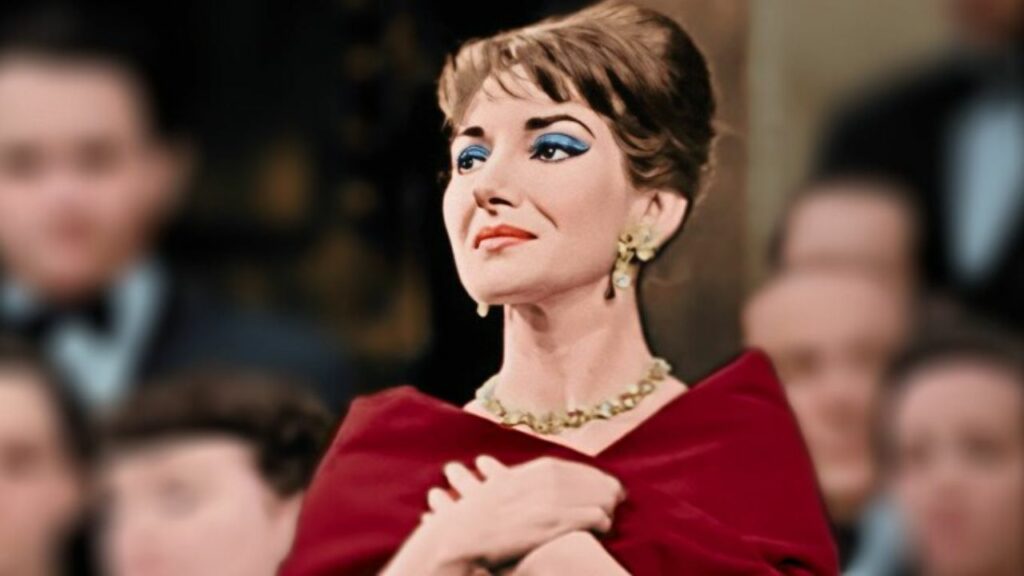Maria Callas, the legendary soprano whose voice left an indelible mark on the opera world, is remembered not just for her unparalleled vocal talent, but also for a transformation that became as iconic as her performances. Callas’ journey from a body she struggled with to a slim, poised figure has captivated audiences for decades. But her weight loss story isn’t merely about physical change; it’s intertwined with her personal battles, artistic ambitions, and the intense pressures of an unforgiving industry.

From Struggle to Triumph: Maria Callas’ Body Image Battle
Born in 1923, Maria Callas faced body image challenges from a young age. In her early 30s, critics and opera impresarios began scrutinizing her not only for her voice but also for her appearance. By the time Callas reached her prime, she was often described as overweight, with some reports placing her weight at about 200 pounds at her heaviest. But Callas wasn’t just fighting for physical transformation—she was fighting for her place in the opera world, where beauty and body standards were just as important as vocal prowess.
The Turning Point: Luchino Visconti’s Demanding Ultimatum
In 1953, Callas faced a pivotal moment in her career. Renowned opera director Luchino Visconti reportedly gave her an ultimatum: “Lose 66 pounds, or lose the role.” For Callas, the pressure was overwhelming. Her career was at a crossroads, and her weight had become an obstacle.
As she reflected on that moment, Callas famously said, “If I had to lose weight for my career, then that’s what I would do. The voice must come first. I will do anything to keep my work.” This determination set her on a grueling path to weight loss, reducing her weight from 200 pounds to 120 pounds in just over a year—a remarkable transformation that would reshape her life and career.
The Sacrifice: A Grueling Journey of Diet and Dedication
The road to Callas’ dramatic transformation wasn’t easy. She adhered to a strict low-calorie diet, primarily consisting of lean proteins like chicken and salads. Her meals were simple but meticulously planned, with no room for indulgence. Her commitment was fierce, and she became a regular at weight loss clinics in Switzerland, where her weight gradually began to fall off.
But it wasn’t just the physical toll that weighed on her. In a rare candid moment, Callas confessed, “I was miserable. But it had to be done. It wasn’t just about fitting into costumes. It was about reinventing myself.” In her mind, this was a battle for survival in a fiercely competitive industry, where appearance mattered just as much as talent.
The Price of Perfection: Mental and Physical Costs
As Callas shed the pounds, she faced criticism from every corner. The media, critics, and even her fans began to scrutinize her transformation. At first, she had been described as “fat” in reviews, but once her weight loss became noticeable, she was praised for her slim figure. Yet, this praise often overshadowed her musical achievements, leaving Callas feeling isolated and under even more pressure.
“I feel as though I have to perform for them—my voice and my body,” Callas once shared. The relentless pursuit of the “perfect” body, though successful, took a toll on her mental health. She was no longer just singing for the applause—she was performing for acceptance.

The Physical Transformation and Its Impact on Her Voice
While Callas’ weight loss was hailed as a triumph, it came with consequences. Her voice, once renowned for its power and emotional depth, began to suffer under the stress of her rapid physical transformation. Some critics have suggested that the physical toll of losing 80 pounds in such a short period may have affected her vocal range and strength.
“I felt weaker than ever,” she said, reflecting on the later years of her career. Despite these challenges, Callas’ slimmer figure and newfound stage presence allowed her to reinvent her roles, bringing a grace and ethereal beauty to the stage that complemented her once larger-than-life voice.
A Modern Reflection: The Societal Pressures of Callas’ Era
Looking back at Maria Callas’ journey today, it’s hard to ignore the immense societal pressures she faced. In an era where opera stars were expected to be glamorous and maintain a physical ideal, Callas was pushed to extremes. Should she have had to go through such measures to be accepted?
Her weight loss story—a dramatic 80-pound drop—may seem shocking, but it speaks to the societal standards of her time. Her transformation is a testament to her resilience, but also to the deep-rooted pressures that shaped her career.
Maria Callas’ Legacy: More Than Just a Physical Transformation
Maria Callas’ weight loss story is not just a tale of physical change; it’s a saga of sacrifice, ambition, and reinvention. Her willingness to give everything to her craft—the voice, the body, the soul—created a legacy that continues to inspire. Her ability to lose weight drastically and maintain it speaks to her indomitable spirit. Yet, the question remains: at what cost?
In the end, Maria Callas will not be remembered for the pounds she lost, but for the voice she gave the world. Her contributions to the world of opera are far beyond the numbers on a scale. Her legacy is one of profound artistic achievement, one that no amount of weight loss or gain could ever diminish.